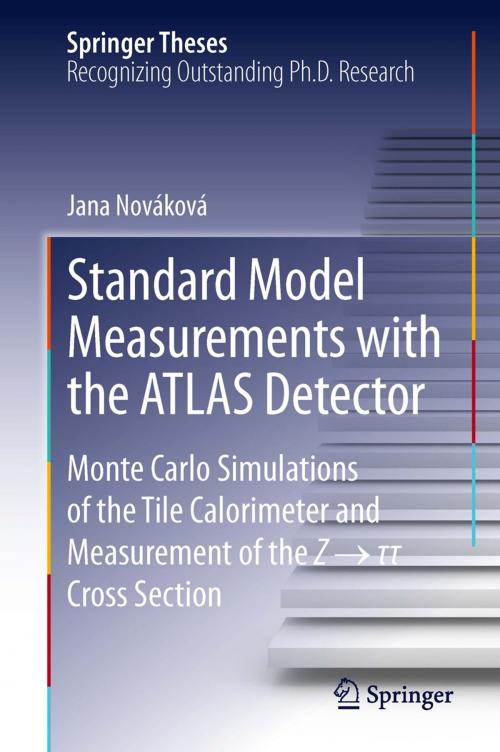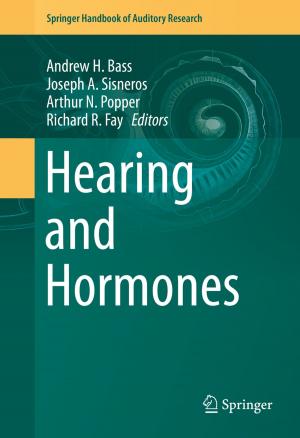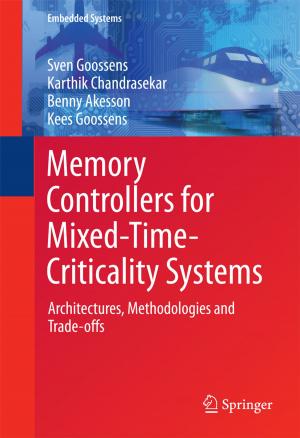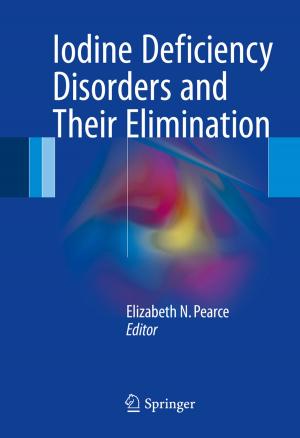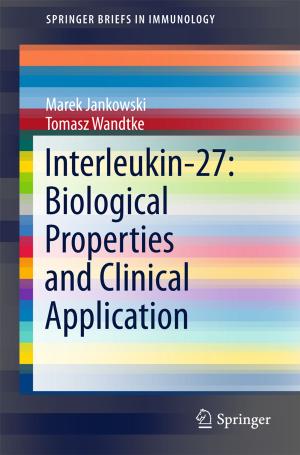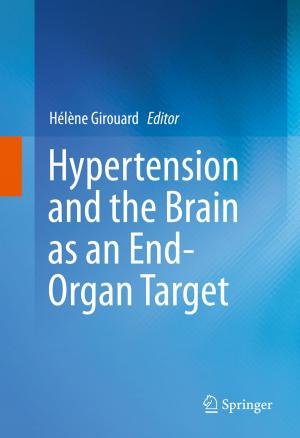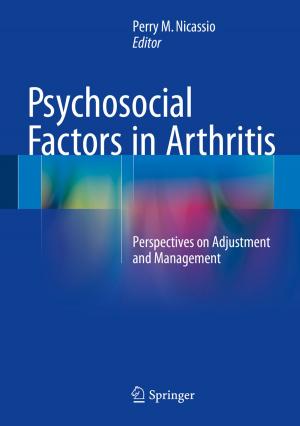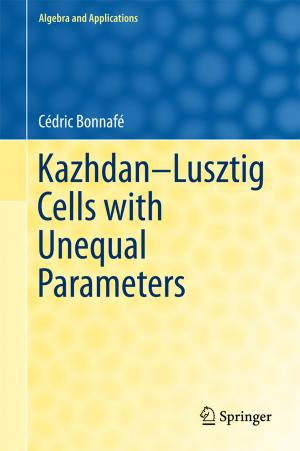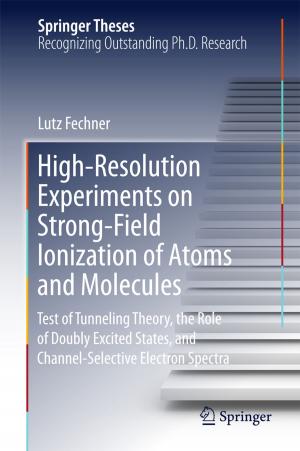Standard Model Measurements with the ATLAS Detector
Monte Carlo Simulations of the Tile Calorimeter and Measurement of the Z → τ τ Cross Section
Nonfiction, Science & Nature, Science, Other Sciences, Weights & Measures, Physics, Nuclear Physics| Author: | Jana Nováková | ISBN: | 9783319008103 |
| Publisher: | Springer International Publishing | Publication: | August 30, 2013 |
| Imprint: | Springer | Language: | English |
| Author: | Jana Nováková |
| ISBN: | 9783319008103 |
| Publisher: | Springer International Publishing |
| Publication: | August 30, 2013 |
| Imprint: | Springer |
| Language: | English |
This thesis deals with two main procedures performed with the ATLAS detector at the Large Hadron Collider (LHC). The noise description in the hadronic calorimeter TileCal represents a very valuable technical job. The second part presents a fruitful physics analysis - the cross section measurement of the process p+p → Z0 → τ + τ.
The Monte Carlo simulations of the TileCal are described in the first part of the thesis, including a detailed treatment of the electronic noise and multiple interactions (so-called pile-up). An accurate description of both is crucial for the reconstruction of e.g. jets or hadronic tau-jets.
The second part reports a Standard Model measurement of the Z0 → τ + τ process with the emphasis on the final state with an electron and a hadronically decaying tau-lepton. The Z0 → τ + τ channel forms the dominant background in the search for Higgs bosons decaying into tau lepton pairs, and thus the good understanding achieved here can facilitate more sensitive Higgs detection.
This thesis deals with two main procedures performed with the ATLAS detector at the Large Hadron Collider (LHC). The noise description in the hadronic calorimeter TileCal represents a very valuable technical job. The second part presents a fruitful physics analysis - the cross section measurement of the process p+p → Z0 → τ + τ.
The Monte Carlo simulations of the TileCal are described in the first part of the thesis, including a detailed treatment of the electronic noise and multiple interactions (so-called pile-up). An accurate description of both is crucial for the reconstruction of e.g. jets or hadronic tau-jets.
The second part reports a Standard Model measurement of the Z0 → τ + τ process with the emphasis on the final state with an electron and a hadronically decaying tau-lepton. The Z0 → τ + τ channel forms the dominant background in the search for Higgs bosons decaying into tau lepton pairs, and thus the good understanding achieved here can facilitate more sensitive Higgs detection.
